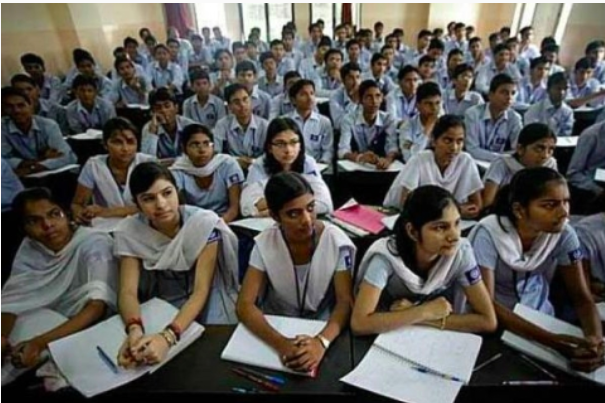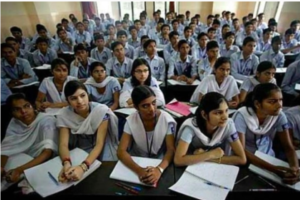
Right Decisions Are Not Always The Easy Ones: Why Governments Should Actively Consider Reopening Schools
November 11, 2020After the national lockdown and school closures in March, students rushed to adopt online learning.
Right at the outset, the inequalities of this model were clear. Electricity, fast uninterrupted Internet services, and a big enough screen are essential for accessing online educational content.
However, a sizeable number of Indians, struggle with this digital access, particularly low-income families.
The socio-economic inequalities in our society could be further exacerbated, as students lacking the appropriate infrastructure at home would be at a significant disadvantage and lose ground on their learning.
The annual state of education report (ASER) in September 2020 highlighted that more than 50 per cent of students in rural Odisha could not study due to lack of a suitable device or connectivity issues.
In fact, this problem is not unique to India, as some American cities, had started learning centres for low-income students even as they kept schools closed for the rest.
Evidence from across the world suggests that the adoption of remote learning has lowered learning outcomes.
In United State, reports show a sharp drop in the number of young children meeting literacy benchmarks, between 7per cent and 22 per cent year-on-year for different age groups.
In India, where we were already struggling with learning outcomes, the fear is of the problem deteriorating.
Beyond digital access, schools in India also provide textbooks, mid-day meals, other learning materials and an environment for learning.
ASER’s rural study also revealed that about 20 per cent children didn’t have textbooks at home, and a third of students had no learning activity in the week of the survey.
Further, two thirds had no learning materials or activity given by the school that week. There has also been a spike in un-enrolled six to 10 year olds, from 1.8 per cent in 2018 to 5.3 per cent this year.
These tough times have also led to conflicts between schools, parents, and the state. Schools are in danger of being shut down permanently and have taken governments to the court. Parents and schools are at odds over the issue of fees, while teachers and schools are at conflict over the issue of teacher salary cuts.
At the same time, the burden on teachers has been such that many of them have been working without a break since March. The negative impact of school closures on the school ecosystem has been severe.
Schooling is essential to upward socio-economic mobility, and the loss of learning results in the lowering of productivity across large sections.
The World Bank estimated that the long-term economic impact of this on India would be around $400 billion.
In today’s world, the development of human capital is the most important determinant of a nation’s long-term success.
Before the coronavirus pandemic, India ranked 116th in the World Bank’s Human Capital Index, published in 2020. The loss of a few months of schooling is likely to create a dip in the learning of all schoolchildren this year.
With the loss of learning for an entire generation, India risks erosion of its decades-long progress on human capital development. This gains more urgency, when we contrast against Europe, which has largely kept its schools open throughout the pandemic.
Even as there is a second wave of infections, France, Ireland and Germany have chosen to keep their schools open in spite of lockdowns for all other sectors. Closer home, schools are already open and functioning in China. Indian children face the prospect of a widening learning gap with respect to their global peers.
To be fair, as per the prevailing medical advice, there is a risk that the count of Covid-19 infections might rise.
However, globally the evidence suggests that that child to child transmission is uncommon and re-opening schools has not been associated with significant increases in community transmission or big increases in Covid-19 cases.
Hence, closure of schools is not likely to provide additional protection to our children from Covid-19 —the risk of a sharp uptick in cases is low.
In contrast, the evidence for the loss of learning is clear — the longer we shut down schools, the bleaker our children’s future.
Some Indian states like Andhra Pradesh, Uttar Pradesh and Haryana have taken the decision to open schools in a phased manner with due precautions. Other state governments should take the cue and move beyond optimising for the single variable of Covid-19 infections.
Education is opportunity, and school closure is effectively shutting the door of opportunity for our children. After all, it is our moral duty to safeguard the long term interests of our children.
Siddharth Shirole is an elected member of Maharashtra Legislative Assembly. Omkar Sathe is an IIM Calcutta alumnus, with a keen interest in public policy. Sahil Deo is co-founder of CPC Analytics.


